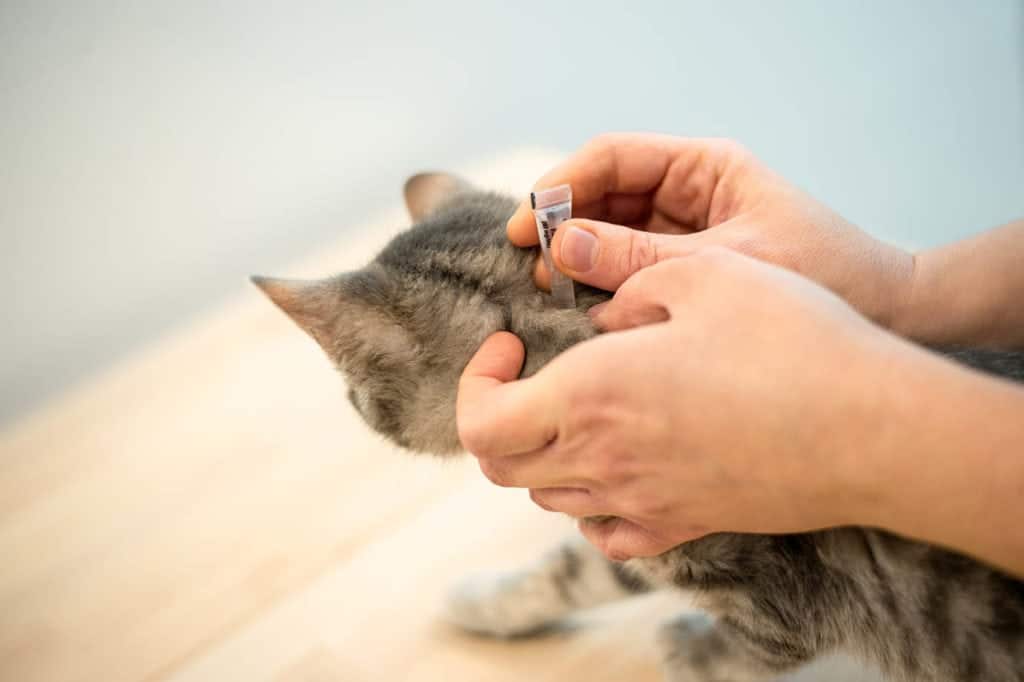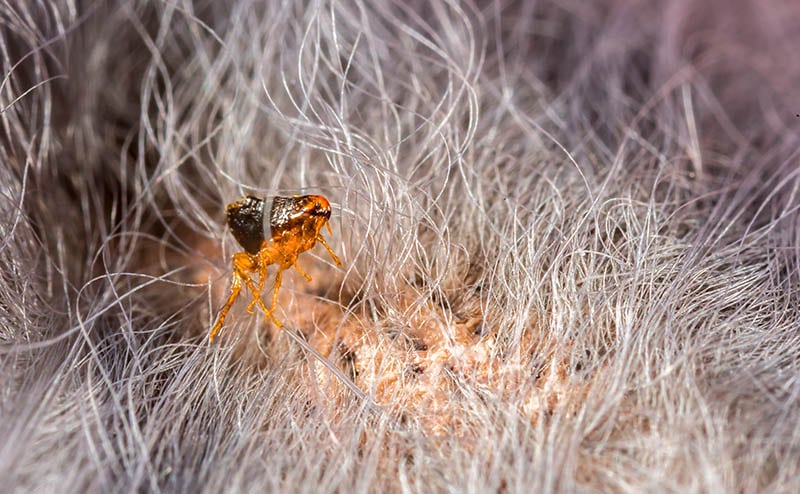Do fleas die in winter or cold weather? According to Athens Animal Wellness Center1, fleas can survive for up to 5 days in temperatures as low as 46 degrees Fahrenheit. That means unless you keep your house at sub-50 temperatures, the fleas on your cat won’t be dropping off any time soon, especially since your cat keeps them nice and toasty. Unless you get rid of them, fleas can lay up to 40 eggs per day, which quickly snowballs into a very big and very itchy problem.
The fleas outside will die in less than a week if they don’t find a host, so you only have the fleas inside to deal with. That said, many fleas will make their way indoors during early winter weather by hitching a ride on your pets.
Winter might reduce local flea populations, but it can’t cure an infestation. For more info on how you can help get rid of your cat’s fleas and keep them away, you’ve come to the right place. Read on below for specific treatment and prevention strategies you can employ in your home today.

How to Get Rid of Fleas on Your Cat
You’ll first need some pure Castile soap or cat shampoo, hot water, and a fine-toothed flea comb suitable for your cat’s coat. Start by normally brushing out the fur, then dip your comb in soapy hot water. Brushing your cat with this hot, soapy water will draw out and kill both the fleas and their eggs.
If that doesn’t quite do the trick, you may need to up your game with some heavier-duty treatment options. Let’s look below at which you can use to control fleas for your cat and how well they work.
- Topical Medication: These are highly effective pour-on medications applied to the back of your cat’s neck, where they can not lick it. These treatments typically last for a month and are effective against fleas, eggs, and larvae.
- Oral Medication: Oral anti-flea medication for cats is also available. They start killing adult fleas 30 minutes after ingestion and kill about 90% of the flea population after 4-6 hours. Re-infestation is possible because flea eggs may remain in the environment, so repeated treatments and deep home cleaning are needed.
- Flea Collars: These are passive accessories that slowly disperse anti-flea medicine into your cat’s fur and their skin’s oil glands.
Topical medication is 100% the most effective way to go to kill the fleas on your cat. It’s pretty cheap, easy to apply, and starts working quickly. If your cat simply won’t tolerate handling, you can try hiding oral medicine inside a tasty treat or another snack.

How to Prevent & Deter Fleas in Your Home
Deterring fleas is the most effective way for your cat to not get fleas in the first place, but it works after treatment just as well. Keeping your home clean is the best way, but there are a few specific things for you to try that will drastically decrease the chances of another flea infestation from plaguing your best furry feline friend.
- Wash all bedding and fabrics your cat has regular contact with after treating them for fleas. Use hot, soapy water for washable items and a steam cleaner for upholstery.
- Vacuum every day with a HEPA-rated vacuum, paying special attention to carpets and crevices.
- If practical, consider getting rid of your carpets—they’re basically giant flea forests for them to hang out in until they can find a host. Otherwise, ensure that you steam clean them after each good vacuum.
- Restrict how often your cat goes outside to keep fleas away.
- Keep your grass trimmed, as fleas love long, unkempt lawns.

Conclusion
Unfortunately for itchy cats, just waiting for winter to kill their fleas isn’t a good solution. Cats are pretty good about picking the occasional flea off, but severe cases could call for oral or topical medication. After treating your cat, treat your home to keep fleas away for good.
Related Read:
- Does UV Light Kill Fleas on Cats? Vet Reviewed Treatment Options
- Does Rain Kill Fleas? Vet Approved Facts & FAQ
Featured Image Credit: Vera Larina, Shutterstock





